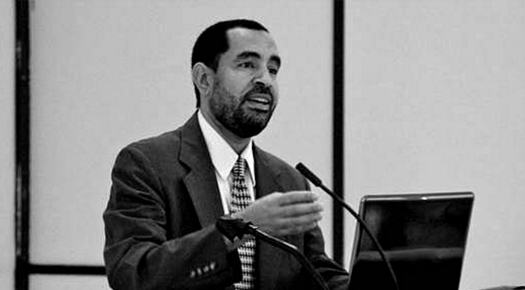
Muslims should not consider Islam and democracy to be mutually exclusive, said an Egyptian lawmaker last month. Abdul Mawgoud Dardery, a parliamentarian from the country’s Freedom and Justice Party, said democracy in itself was a Muslim concept that was rooted in the early days of the religion as practiced in Medinah.
“People 1,400 years ago needed to get together to discuss affairs, in what I would call participatory democracy, for the public good of the rest of the community. The early concept then developed in different ways so as to produce democracy,” Dardery said at a lecture organized in Kuala Lumpur.
A self-declared Muslim democrat, Dardery also told his audience that the two worlds of Islam and democracy actually feed into one another.
“Islam did not present itself as an exclusive way of life. From the days of Medinah, there were Muslims, Christians, Jews and others living together, who made the Constitution of Medinah. The Medinah Agreement developed as an alternative to the diverse societies living apart,” he said. “There is always this struggle in life between those who aspire for transparency, accountability and the rule of law, and those who oppress others. It happens in the Islamic world and many other societies. … In my home country, there is a struggle between Muslim democrats and the dictatorship. The Muslim democrats are trying their best to build their own alternative for Egyptian citizens to have equal rights before the law, and to be able to agree to disagree, and to work together to build better alternatives for Egyptians.”
Condemning forceful uprisings, Dardery said that violence offers no solution to dictatorship as it only deepens the rift between the dictator and citizens.
“The military dictatorship (in Egypt) needed to create violence and extremes to justify its presence. The majority of Egyptians decided that our revolution is peaceful; and we will continue to do so, because our peace is stronger than their bullets,” he said. “The school (of thought) I belong to does not believe in extremism or violence. We believe in sociopolitical work, and a peaceful means to change. We have determined for the past 80 years to remain peaceful in our socio-political journey in Egypt.”
Dardery elucidated that the Egyptian Revolution of 2011 was initiated by the country’s youth, which wanted an immediate change in the bureaucracy and longstanding stagnant structure.
“They decided to go to the streets demanding change and freedom. They wanted the freedom to choose their own representatives without having the elections rigged; that those chosen could be held accountable, and that there would be transparency. … They wanted to take the power back to the people, who at the end of the day make their own decisions,” he said.
Photo Credits: Mint Press News
